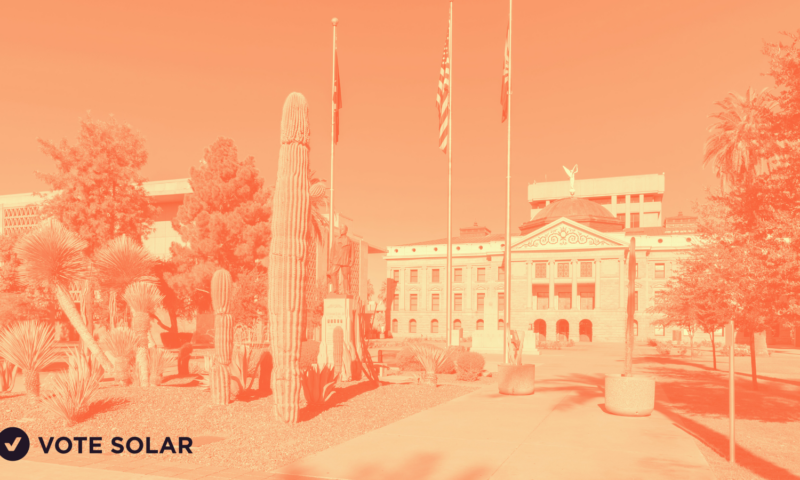Historic Tribal Investments in the FY 2024 Arizona Bipartisan Budget – An Important Win With More Work To Be Done
While the Arizona legislative session has been largely disappointing, especially when it comes to passing meaningful clean energy policy, one bright spot is that Tribal leaders and communities in Arizona were able to secure an unprecedented amount of funding in the Fiscal Year 2024 Arizona state budget. These record-breaking investments indicate a new and invigorating level of effort, advocacy, and state-Tribal collaboration that could not have been achieved without key legislative representatives and community advocates. In particular, special thanks is due to Senator Theresa Hatathlie, Representative Myron Tsosie, and Representative Mae Peshlakai for actively working to ensure a healthier and safer tomorrow for all Arizonans– while respecting and strengthening Tribal sovereignty and raising awareness for Tribal specific issues. Some significant highlights in these investments include:
- $9 million for economic transition resources to be distributed to non-profit organizations for capital projects, economic sustainability developments, renewable energy projects, and broadband projects located within 20 miles of a coal mine that closed within the past five years;
- $1 million for the MMIP (Missing & Murdered Indigenous Persons) Task Force:
- $14 million for Tribal Colleges including Diné College, San Carlos Apache College, and Tohono O’odham College
While this is a huge step forward in securing a brighter future for communities, there is still more work that needs to be done in collaboration with Tribal nations and the Arizona state legislature. The $9 million allocated to support economic transition resources dedicated to communities in proximity to coal mines that have closed represents just a portion of the $60 million requested through the early senate bill (see SB1399) within the AZ legislative session that died earlier this year. The final agreed upon budget line of $9 million is a ‘drop in the bucket’ for what these Tribal communities, specifically on the Navajo Nation, in economic transition from coal mines need to recover their economies to the fullest extent possible.
While this monumental investment is a singular step in the right direction for Tribes in AZ, it is important to recognize that 22 Tribes thrive and live within the state of Arizona. Until all 22 Tribes are being considered and meaningfully consulted within these budget negotiations, the brightest, fullest picture of Arizona will never be fully achieved. Tribal-specific issues, such as coal community transition and Missing, Murdered, and Indigenous Person movements, deserve the utmost attention of every elected official in our beautiful state of Arizona. So much has been done, but more importantly, there is so much more to do. Again, special thanks to the efforts of all Native community advocates and officials who helped make this year’s FY2024 budget a reality by centering Tribal priorities.


